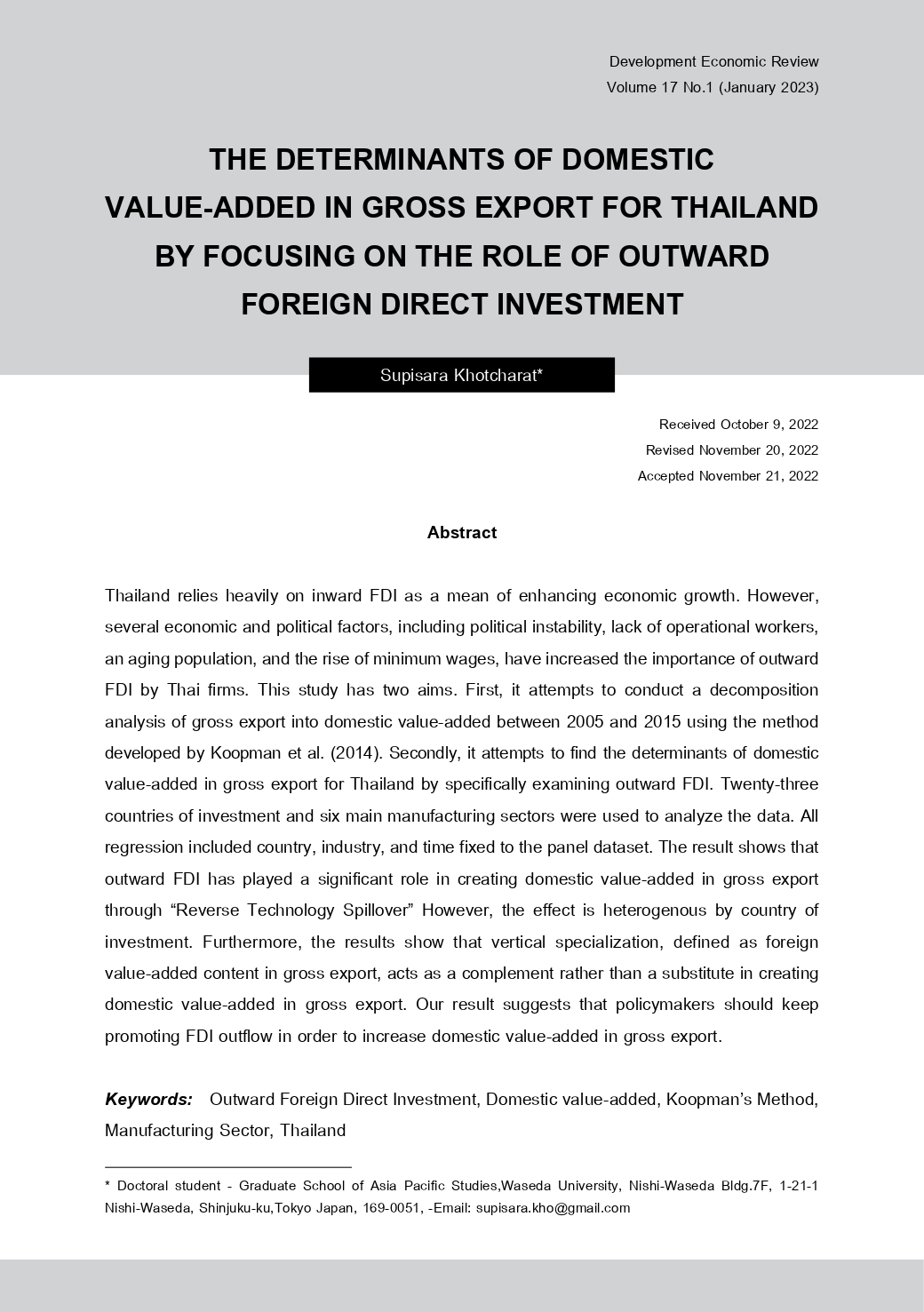The Determinants of the domestic value-added in gross export for Thailand by focusing the role played by outward FDI
Keywords:
Outward FDI, Domestic value-added in gross export, Koopman's method, Manufacturing sectors in ThailandAbstract
Thailand relies heavily on inward FDI as a means of enhancing economic growth. However, several economic and political factors, including political instability, lack of operational workers, an aging population, and the rise of minimum wages, have increased the importance of outward FDI by Thai firms. This study has two aims. First, it attempts to conduct a decomposition analysis of gross export into domestic value-added between 2005 and 2015 using the method developed by Koopman et al. (2014). Secondly, it attempts to find the determinants of domestic value-added in gross export for Thailand by specifically examining outward FDI. Twenty-three countries of investment and six main manufacturing sectors were used to analyze the data. All regression included country, industry, and time fixed to the panel dataset. The result shows that outward FDI has played a significant role in creating domestic value-added in gross export through “reverse technology spillover.” However, the effect is heterogenous by country of investment. Furthermore, the results show that vertical specialization, defined as foreign value-added content in gross export, acts as a complement rather than a substitute in creating domestic value-added in gross export. Our result suggests that policymakers should keep promoting FDI outflow in order to increase domestic value-added in gross export.

Downloads
Published
Issue
Section
License
Copyright to published manuscripts becomes the property of the Graduate School of Development Economics, National Institute of Development Administration. Reproduction of all or part of a Development Economic Review (DER) article by anyone, excluding author(s), is prohibited, unless receiving our permission.
Disclaimer: Opinions expressed in articles published in this journal are those of the author (s) and do nto necessarily represent opinions of the Graduate School of Development Economics, National Institute of Development Administration. Trade and proprietary names are only for identification and not constitute our endorsement.

